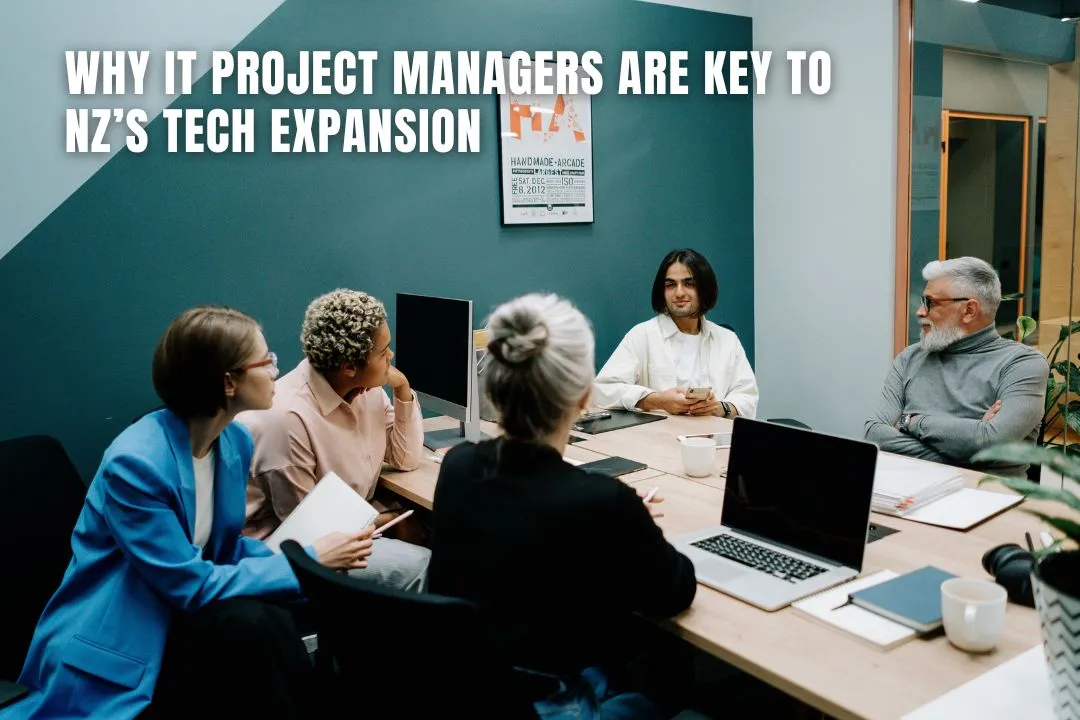
New Zealand’s digital momentum is picking up speed—and with it, the demand for leaders who can turn bold ideas into real outcomes. From digitising government services to building smart infrastructure, the country is investing heavily in tech projects that touch nearly every part of daily life. But none of it happens without someone steering the ship.
That’s where IT project managers come in. Whether it’s a large-scale public sector rollout or a private enterprise overhaul, project managers are the ones making sure budgets are respected, timelines stay tight, and teams stay aligned. As regional tech ecosystems in Wellington, Christchurch, and Auckland mature, the need for these roles isn’t just growing—it’s becoming critical.
Let’s break down exactly why IT project managers are at the centre of New Zealand’s digital expansion and what this means for both employers and professionals looking to level up their careers.
Auckland still leads in tech sector scale, but it’s not the only player in town. Over the past five years, Wellington and Christchurch have carved out unique niches in the national tech map.
Wherever the action is, project managers are the quiet force turning “funded initiative” into “operational success.”
New Zealand’s push for smart cities is more than just talk. Across the country, councils are rolling out sensor networks, traffic optimisation platforms, and integrated data systems. These projects sound futuristic—but they live or die by their execution.
Without the right project leadership:
Smart city initiatives are especially complex because they involve so many moving parts: public-private partnerships, security concerns, and long deployment timelines. Project managers act as translators between technical teams and city leadership. They manage timelines across departments. And they’re the ones who jump in when the “tech” part of smart cities starts bumping into real-world issues like infrastructure limitations and citizen pushback.
The New Zealand government has committed to creating a “digital public service,” and that means turning paper-based, person-to-person workflows into secure, scalable, cloud-based solutions.
From immigration systems to education platforms, almost every ministry has some form of digital transformation roadmap underway. But it’s not just a matter of hiring more developers.
It’s about managing:
And that’s why public-sector agencies are hungry for experienced project and programme managers. They need leaders who understand Agile delivery but can also report to ministers and boards with confidence. In many ways, PMs are becoming the glue between policy, tech, and public accountability.
Not every PM is equipped for the New Zealand tech environment. Here, technical complexity often intersects with public scrutiny and cross-functional teams.
The most sought-after PMs tend to have:
Certifications like PRINCE2 and PMP are helpful, but they’re no substitute for emotional intelligence and problem-solving under pressure.
Also, because many tech projects here involve government funding or vendor partnerships, understanding procurement cycles, compliance issues, and stakeholder politics is a major plus.
Here’s the kicker: There simply aren’t enough skilled PMs to go around.
A 2023 report from NZTech highlighted that project leadership is one of the top skill shortages across both public and private sectors. Tech companies can hire developers offshore. But project managers need to be embedded locally—on the ground, in the culture, working shoulder to shoulder with internal teams and external vendors.
Many companies and agencies are now competing for the same pool of experienced professionals. That’s opened the door for:
For anyone with the right mix of skills, it’s a buyer’s market.
It’s easy to think of project managers as pure operators—task trackers and deadline enforcers. But in modern New Zealand workplaces, they often double as team culture drivers.
Think about it:
Especially in hybrid and remote-first environments, PMs set the tone for how projects feel, not just how they’re delivered. The best ones build trust across engineering, design, product, and even marketing. That’s not just good for morale, it’s great for retention and long-term project success.
The rise of remote and flexible work models has changed how projects get built and how PMs are expected to lead.
While dev teams can be spread across New Zealand (or the world), PMs still need to:
That means digital literacy and remote facilitation skills are no longer “nice to have.” They’re essential. The ability to run a 20-person project across four cities and two time zones? That’s gold.
And New Zealand’s tech employers know it. Many are building distributed teams by default and want PMs who’ve worked remotely before—or who can adapt fast.
If you’re hiring for project leadership in 2025, the competition is tough. But that doesn’t mean it’s impossible.
Here’s how top employers are attracting PM talent right now:
In short, project managers want to work where they’re respected as strategic partners, not just task-checkers.
If you’ve been sitting on a set of transferable skills—team leadership, stakeholder coordination, delivery planning—this might be your sign.
There are real pathways into PM roles in New Zealand’s tech scene:
Once you’ve got a few runs on the board, platforms like Sourced.nz offer targeted listings for both junior and senior PM roles. With regional tech growing fast, especially in Christchurch and Wellington, the timing couldn’t be better.

New Zealand’s digital future isn’t being built on hype—it’s being built on delivery. And delivery needs direction.
That’s why IT project managers aren’t just another job title—they’re essential to making tech ambitions real, sustainable, and impactful.
From smart traffic systems in Christchurch to end-to-end digital services in Wellington, it’s PMs turning ideas into outcomes.
If you’re one of them, or want to be, New Zealand’s expansion isn’t just a story worth following—it’s one you can lead.